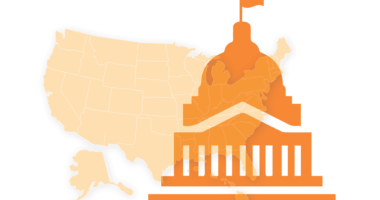Hungry Kids Continue to Struggle Through a Pandemic During Summer Months
America’s kids have already endured what has been undoubtedly the most nontraditional school year of their young lives. However, the summer months bring added uncertainty for many families who are trying to feed their school-aged children. If Congress doesn’t act soon, millions of kids could go hungry.
During “normal” circumstances, schools would alert families of the summer meals program, which provides food and programming for children from low-income backgrounds while classes are not in session. Though the summer meals program has operated since the 1970s, recent research says that only 1 in 7 families pursue the summer meals program as an option to access food during the summer months. That is less than 15% of all eligible children.
In a nation where over 20 million students depend on schools for their meals each day, the summer meals program fails to deliver. That failure is during normal circumstances. Now take everything mentioned above and throw a pandemic on top of it.
When classrooms rapidly closed in March, many schools and states pivoted to short-term solutions to address social distancing and stay-at-home orders in an attempt to keep children fed. Many states set up meal pick-up options that largely replicated the summer meals program — a program that already fails to serve a majority of students eligible for free and reduced-price meals. The challenges of this model made themselves instantly clear: families struggled to get safely to meal sites, food workers became sick and locations closed, and, in some cases, the need was so severe that meal sites began feeding adults despite the associated health risks.
The pandemic, accompanied by rising unemployment, caused the nutritional needs of families to skyrocket. In a national survey by Hunger Free America, over 35% of parents reported cutting the size of meals or skipping meals for their children between mid-March and mid-April (when the survey was released), because they did not have enough money to purchase food.
That’s when Congress stepped in to create the Pandemic Electronic Benefits Transfer program (P-EBT), a program that allows school-aged children who are eligible for free and reduced-price lunch to receive money to buy food on an ATM-like card, similar to how some states currently administer Supplemental Nutrition Assistance Program (SNAP). P-EBT eligible students could begin to access these benefits after their schools remained closed for more than five consecutive days. While states were slow to apply for the program with the United States Department of Agriculture (USDA), eventually more than 45 states decided to opt-in to make these dollars available to families from low-income backgrounds in their states. Even if the rollout of the P-EBT program has experienced lags, this method of providing direct cash assistance for food purchasing has been widely acknowledged as the fastest, most effective way to feed children and lift families out of poverty.
Congress must act quickly. If Congress doesn’t act soon to extend the P-EBT program through the summer months and into the next academic year, as well as expand the program to cover children under 5 years old (as was included in the House Democrats’ HEROES Act), America could find itself back where it was in March: replicating a summer meals program that doesn’t work as well as it should and allowing food banks to buckle due to increased demand. USDA must also implement the program expeditiously and ensure all children who are eligible can access these funds while preventing states from putting in place overly burdensome application requirements or requiring questions that might otherwise turn vulnerable families away from pursuing this option. Relatedly, if states do not act to make P-EBT implementation a priority among their state education and health agencies, they risk leaving kids hungry as money sits untouched on the table.
The reality is clear: the coronavirus pandemic is not over, unemployment is crippling families, and schools are trying to figure out what the next academic year will look like. During all this uncertainty, Congress and state leaders can do what has been proven to help kids and families get the food they need during a crisis by continuing the P-EBT program and ensuring these benefits make it into the hands of children and their families across our nation.




